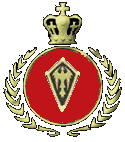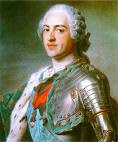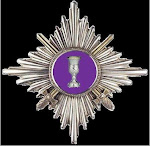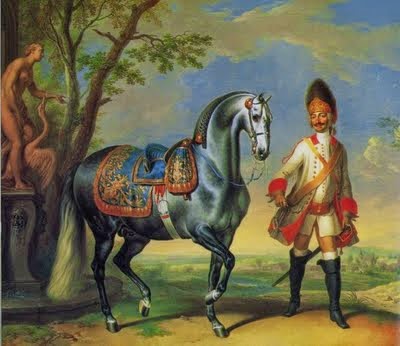Baron Alexander von Jagow, Prime Minister to Duke Augustus returned from a recent trip to Berlin. While in Prussia the Baron met and dined with Crown Prince Albrecht whom is currently on military assignment in Berlin whom sends his greetings and report to his father the Duke. Before leaving the Prince warned the Baron that trouble was afoot, that the political climate in Berlin was changing.
Baron von Jagow also met with several Prussian ministers whom were most interested in how the "crusade" against Bittburg was proceeding. The Baron informed them of the current situation in Bittburg and of the mandate given the Duke by the Holy See in Rome. The Prussian ministers advised the Baron that the Duke should bring his army home and end the war. The Baron made queries as to why we should do such a thing and it was revealed to him that strong protestant forces inside Prussia and out desired to see Bittburg throw off the shackles of the Catholic church. The Baron nodded his understanding but wanted to put forth his sovereign's claim as the Margrave of Bittburg to the assembled ministers. That they did not question and they seemed favorable towards this disposition and that he should seek his claim, just not on the orders of Rome. As far as they were now concerned, Rome should no longer have any hand in the affairs of state within the Reich.
On hearing his prime minister's words, the Duke retired to his library to contemplate his decision. The next morning the Duke assembled his court and from his golden eagle throne ordered the Royal General Staff to bring the army within the newly drawn borders of Saxe-Huack. That the army should garrison the city of Munchhausen and await there for further instruction. Second that a peace delegation be led by Prime Minister von Jagow accompanied by his staff and a company of Liebstandarte Guards.
The peace settlement plan included two parts. The first that the nature and cause of the current war was that of religious reasons and that for the same reasons should end. To achieve this end if the Revolutionary Council of Bittburg would release the Bishop of Bittburg unharmed, that Saxe-Huack would end all current military operations against Bittburg. That the city of Munchhausen had in it's own accord sworn fealty to the ducal crown and was now a royal estate and no claim should be put forth against it. The second part of the settlement was a demand that the Revolutionary Council recognize Duke Augustus as Margrave of Bittburg, disband, and submit to the Duke's mercy.
The peace conference took place in the village of Furth, midway between Munchhausen and Bittburg. In attendance were the Saxe-Huack delegation, the Revolutionary Council, Colonel von Vorbeck, Colonel Brendel, whom eyed one another with calculating curiosity, and ministers from Prussia, Bavaria and France. While the delegates debated the settlement Colonel von Vorbeck took the time to casually stroll through the village of Furth, paying close attention to the units of the Revolutionary Army that had accompanied their colonel to the peace process and realized that Bittburg now had regular, uniformed line infantry in it's army. He also noticed a pair of their officers discussing the current events in English.
After hours of deliberation the peace settlement was made. The Bishop of Bittburg would be freed and allowed to return to his church and throne in the city, but no longer would he be allowed to meddle in affairs of state. Any attempt by the bishop to raise an army or organize resistance to the revolution would result in the bishop being forcibly exiled from the state and his property forfeit. The City of Munchhausen was now a recognized estate of Saxe-Huack and the Frei Stadt of Bittburg was now officially recognized by Prussia, Bavaria and France. The second part of the peace plan, as expected, was summarily rejected by the ministers of Bittburg.






















No comments:
Post a Comment